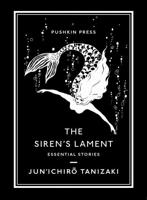Publisher's Synopsis
Pizarro: A Tragedy, In Five Acts (1799) is a play written by August von Kotzebue. The play is set in Peru during the Spanish conquest and centers around the character of Francisco Pizarro, a Spanish conquistador who leads the invasion of the Inca Empire. The play explores themes of power, betrayal, and the clash of cultures between the Spanish and the Incas.In the play, Pizarro is depicted as a ruthless and ambitious leader who is determined to conquer the Inca Empire and claim its riches for Spain. He is aided by his loyal lieutenant, Almagro, and the cunning priest, Valverde. However, Pizarro's plans are complicated by the arrival of the Incan princess, Cora, who is taken captive by the Spanish.As the play unfolds, Pizarro becomes increasingly paranoid and paranoid, fearing betrayal from his own men and the Incas. He orders the execution of several of his own soldiers and becomes obsessed with the idea of capturing the Incan emperor, Ataliba. Meanwhile, Cora falls in love with Pizarro's son, Fernando, and tries to persuade him to help her escape.In the final act of the play, Pizarro's plans come to a tragic end as he is betrayed by Almagro and Valverde and captured by the Incas. Cora and Fernando are able to escape, but Pizarro is executed by the Incan emperor. The play ends with a lament for the loss of a great leader and the tragedy of the clash of cultures.Overall, Pizarro: A Tragedy, In Five Acts is a powerful and thought-provoking play that explores the complex issues surrounding the Spanish conquest of South America. It is a classic work of European Romanticism and remains a popular choice for theater productions and academic study.This scarce antiquarian book is a facsimile reprint of the old original and may contain some imperfections such as library marks and notations. Because we believe this work is culturally important, we have made it available as part of our commitment for protecting, preserving, and promoting the world's literature in affordable, high quality, modern editions, that are true to their original work.










